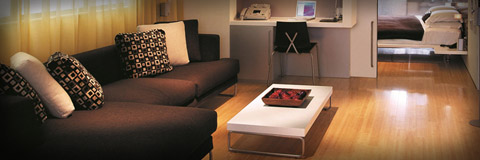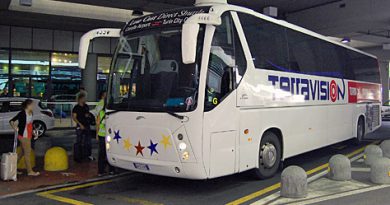Housing and Rentals in Italy
Finding a nice place to live is always difficult. Italy is no exception – finding the right accommodation can be hard, especially in large cities. Read our guide to room and flat rental. Check out the classifieds for available property and people looking to share flats.
There are, however, a few exceptions. For example, in major cities such as Rome and Milan, rented accommodation is in high demand and short supply, and rents can be high.
Accommodation accounts for around 25 per cent of the average Italian family’s budget, but can be up to 50 per cent in the major cities. Property prices and rents vary considerably according to the region and city, and have increased steadily in all major cities in recent years. For example, an apartment renting for €550 per month in Naples would cost up to €1,650 per month in Milan or Rome. In cities and large towns, apartments are much more common than detached houses, which are rare and prohibitively expensive.
Italy has a strong rental market and it’s possible to rent every kind of property, from a tiny studio apartment ( bedsitter) to a huge rambling castle ( castello). Rental properties are mostly privately owned, but include properties owned by companies and public housing owned by local councils.
If you’re looking for a home for less than a year, you’re better off looking for a furnished apartment or house. Most rental properties are let unfurnished ( non-ammobiliato), particularly for lets longer than one year, and long-term furnished ( ammobiliato) properties are difficult to find. Bear in mind that in Italy, unfurnished means a property is completely empty, except perhaps for the bathroom porcelain and possibly a kitchen sink. There will be no kitchen cupboards, appliances, light fittings, curtains or carpets, although you may be able to buy these from the departing tenant. Semi-furnished apartments usually have kitchen cupboards and bathroom fixtures, and possibly a few pieces of furniture, while furnished properties tend to be fully equipped, including crockery, bedding and possibly towels (similar to renting a self-catering apartment).
Finding a rental property
How to find your dream flat
Your success in finding a suitable rental property depends on many factors, not least the kind of rental you’re seeking (a one-bedroom apartment is easier to find than a four-bedroom detached house), how much you want to pay and the area where you wish to live.
There are a number of ways of finding a property to rent, including the following:
- Ask your friends, relatives and acquaintances to help spread the word, particularly if you’re looking in the area where you already live. A lot of rental properties are found by word of mouth, particularly in major cities, where it’s almost impossible to find somewhere with a reasonable rent unless you have connections.
- Check the small advertisements in local newspapers and magazines (see below).
- Look for properties with a ‘to rent’ sign (affittasi or da affitare) in the window.
- Visit accommodation and letting agents. Most cities and large towns have estate agents ( agenzie immobiliari) who also act as letting agents for owners. Look under Agenzie Immobiliarein the yellow pages. It’s often better to deal with an agent than directly with owners, particularly with regard to contracts and legal matters.
- Look for advertisements in shop windows and on bulletin boards in shopping centres, supermarkets, universities and colleges, and company offices.
- Check newsletters published by churches, clubs and expatriate organisations, and their notice boards.
To find accommodation through small advertisements ( piccola pubblicità – affittasi appartamento) in local newspapers you must usually be quick off the mark. Buy newspapers as soon as they’re published and start phoning straight away. You can also view rental advertisements on the Internet, and all major newspapers have websites. Other sources include expatriate publications published in major cities such as Wanted in Rome and small newspapers such as Porta Portese(Wednesdays and Saturdays) in Rome, La Pulce (Florence) and Secondamano (Milan) – there are equivalents in most cities. Some estate agents also provide apartment listings in their real estate magazines, such as Solo Casain Rome.
You must be available to inspect properties immediately or at any time. Even if you start phoning at the crack of dawn, you’re still likely to find a queue when you arrive to view a property in Rome or Milan.
The best days for advertisements are usually Fridays and Saturdays. Advertisers may be private owners, real-estate managers or letting agencies (particularly in major cities).
You can insert a ‘rental wanted’ ( cercasi appartamento or cercasi in affitto) advertisement in many newspapers and on notice boards, but don’t count on success using this method. Finding a property to rent in Rome is similar to the situation in London and New York, where the best properties are usually found through personal contacts. The worst time to look is during September and October when Italians return from their summer holidays and students are looking for accommodation.
Rental Contracts
All you need to know before signing a rental contract
New rental regulations were introduced in 1999, since when there have been two kinds of rental contract: a free market contract ( contratto a libero mercato) and a ‘convention’ contract ( contratto convenzionati) containing pre-determined conditions.
A free market contract is for four years renewable for an additional four-year period, in which the tenant and landlord agree the conditions between themselves. A contratto convenzionato is a three-year contract with a two-year renewal option, although the initial period can be increased to five years with no renewal option.
These new contracts replace the old rent control ( equo canone) and long-term ( patti in deroga) contracts, although these contracts remain valid until their expiry date, when they’re replaced by one of the new contracts.
Free Market Contracts
Luxury apartments ( di lusso), public housing and tourist apartments are exempt from free market contracts. If applicable, a ‘tenants and owners’ association must usually approve contracts for apartments. A contract should be registered with the local ufficio del registro to be valid.
If a landlord needs to reclaim a property before the expiration of a free market contract, he can do so by giving the tenant six months’ notice ( disdetta) in writing, but only under certain conditions. These include requiring the property for his own use, for a child who’s getting married, for an elderly parent or in-law, or to make improvements or repairs prior to selling it. However, if within a year the property isn’t used for the purpose stated in the notification, the landlord must renew the original rental contract with the same tenant or pay an amount equal to three years’ rent as compensation. Otherwise a landlord can reclaim a property only by giving a tenant six months’ notice prior to the end of the contract expiry date. If a landlord wishes to sell a property, a tenant has the first option to buy it.
Convention contract
A convention contract includes properties rented under national agreements between property associations and renters’ unions, who establish the rent. It’s possible to terminate the contract prior to the first expiration date, while the landlord must give a tenant six months’ notice prior to the end of the contract expiry date. A convention contract can also include short-term leases for university students and transitory workers.
The new regulations provide tax breaks for landlords and also established a national fund to help low-income families who are eligible for public housing, but because of a lack of public housing are required to rent apartments on the open market.
Although all addresses are potentially suitable for residence, some rental contracts forbid you to use an apartment’s address for this purpose. Such rental contracts are mainly used with foreigners, so that a landlord can regain possession of his property more easily should he wish to do so. Eviction of a person from his legal residence is almost impossible in Italy and landlords don’t want to take any unnecessary risks with foreigners.
Rental Costs
How much does renting cost?
Rental costs vary considerably according to the size (number of bedrooms) and quality of a property, its age and the facilities provided.
However, the most significant factor affecting rents is the region of Italy, the city and the particular neighbourhood. Until recently, Italy had a fair rent ( equo canone) law that limited rents to those set by the local authorities rather than market levels. This resulted in a shortage of rental properties in some areas and owners are now permitted to set market level rents, which has encouraged more owners to let properties.
Most rents are negotiable and you should try to obtain a reduction. Sometimes an agent will suggest offering a reduced rent and even tell you what to offer. Rental payments are tax deductible for residents. The table below is a guide to current rents:
| Size of Property | Monthly Rental (€) |
| Studio (bedsitter) | 300 – 900 |
| 1 bedroom | 450 – 1,100 |
| 2 bedrooms | 650 – 1,500 |
| 3 bedrooms | 800 – 2,000 |
The above rents are for unfurnished, good quality, new or renovated properties in most rural and suburban areas. They don’t include properties in major city centres and popular resorts (such as the Alps, Italian lakes and resorts), exclusive residential areas or furnished accommodation, for which the sky’s the limit.
If you rent a property through an agent, you must pay the agent’s fee, typically around 10 per cent of a year’s rent or one month’s rental.
Provided rent isn’t paid in advance at more than two-monthly intervals, the landlord can ask for a deposit equal to one to three months’ rent. The deposit must be returned with interest within two months of the termination of the lease, less the amount due to the landlord for damages, redecoration, etc. Although it’s illegal, many tenants don’t pay their last few months’ rent and forfeit their deposit. Rent is normally paid one month in advance and you cannot be required to pay your rent by direct bank deposit.
In addition to rent, tenants in an apartment must have compulsory insurance and pay service charges. There will also be a set of house rules and regulations (regolamento), of which you should obtain a copy.
Service charges usually include such things as heating, hot water, rubbish removal, upkeep of grounds and gardens, use of lift, communal lighting and maintenance, and possibly a caretaker’s services. Other utilities such as gas, electricity and water are usually paid separately by tenants.
Always check whether rent is inclusive or exclusive of charges, which is usually stated in advertisements. Service charges are calculated monthly (payable with the rent) and are usually higher in a new building than an old one. They can vary considerably from as little as €20 to €200 or more per month. Ask to see a copy of the bills from the previous year.
You should also ask to see the bills for telephone and utilities (electricity, gas and water) and check that the previous tenant has paid the bills up-to-date, otherwise you could be liable for any debts.







